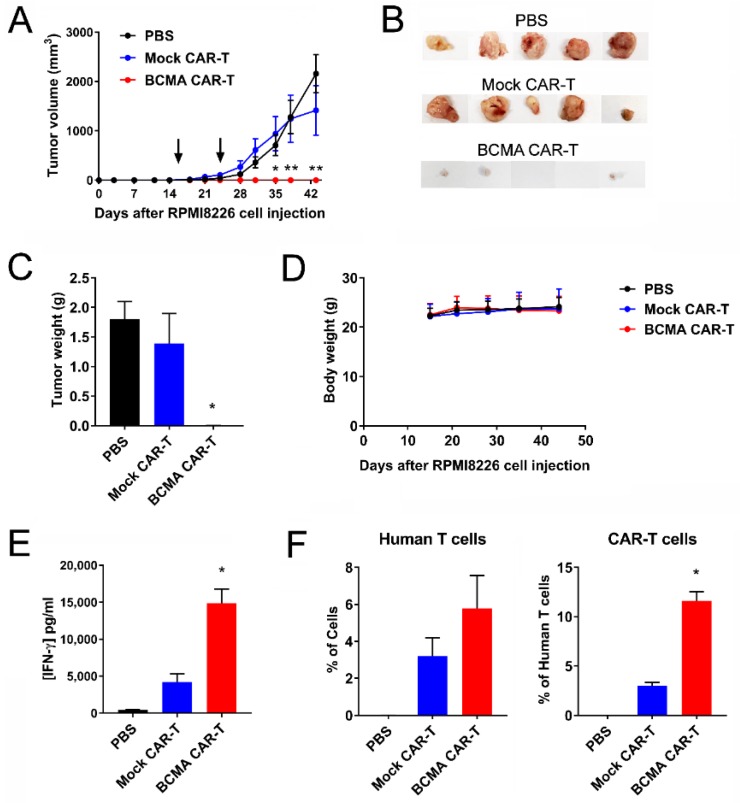Figure 4.
BCMA 4C8A CAR-T cells block RPMI 8226 xenograft tumor growth. (A) NSG (NOD Scid gamma) mice were injected subcutaneously with RPMI8226 myeloma cells and tumor size was measured bi-weekly with calipers. On days 16 and 24 (arrows), the mice received BCMA CAR-T cells, mock CAR-T cells, or PBS intravenously; * p < 0.01, ** p < 0.0001 for BCMA CAR-T cells versus mock CAR-T cells and PBS. (B) The tumors were excised and photographed. (C) The weight of the tumors significantly decreased in BCMA-treated mice. * p < 0.05 for BCMA CAR-T cells versus mock CAR-T cells and PBS. (D) BCMA-CAR-T cells did not change mice weight. (E) BCMA-treated mice had significantly increased level of IFN-gamma in the blood plasma. Human IFN-γ levels were measured in the plasma by ELISA at the end of the study; * p < 0.0001 for BCMA CAR-T cells versus mock CAR-T cells and PBS. (F) The level of human T cells and CAR-T cells in the blood of BCMA-treated mice was significantly increased versus control treated mice. The peripheral blood cells were analyzed by flow cytometry at the end of the study for binding to human BCMA protein and an antibody specific for human CD3. The percentage of cells binding to the CD3 mAb is shown on the left, and the percentage of those human T cells that also bound to the BCMA protein is shown on the right; * p < 0.0001 for BCMA CAR-T cells versus mock CAR-T cells.

